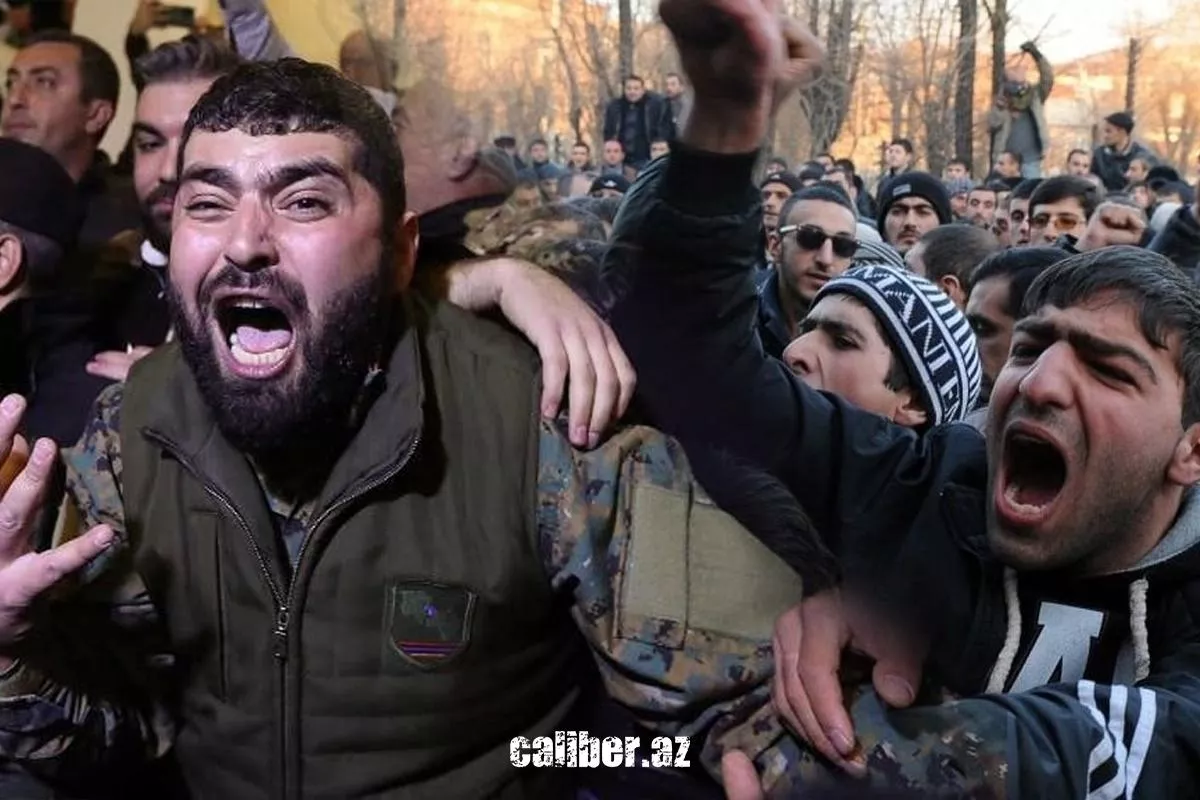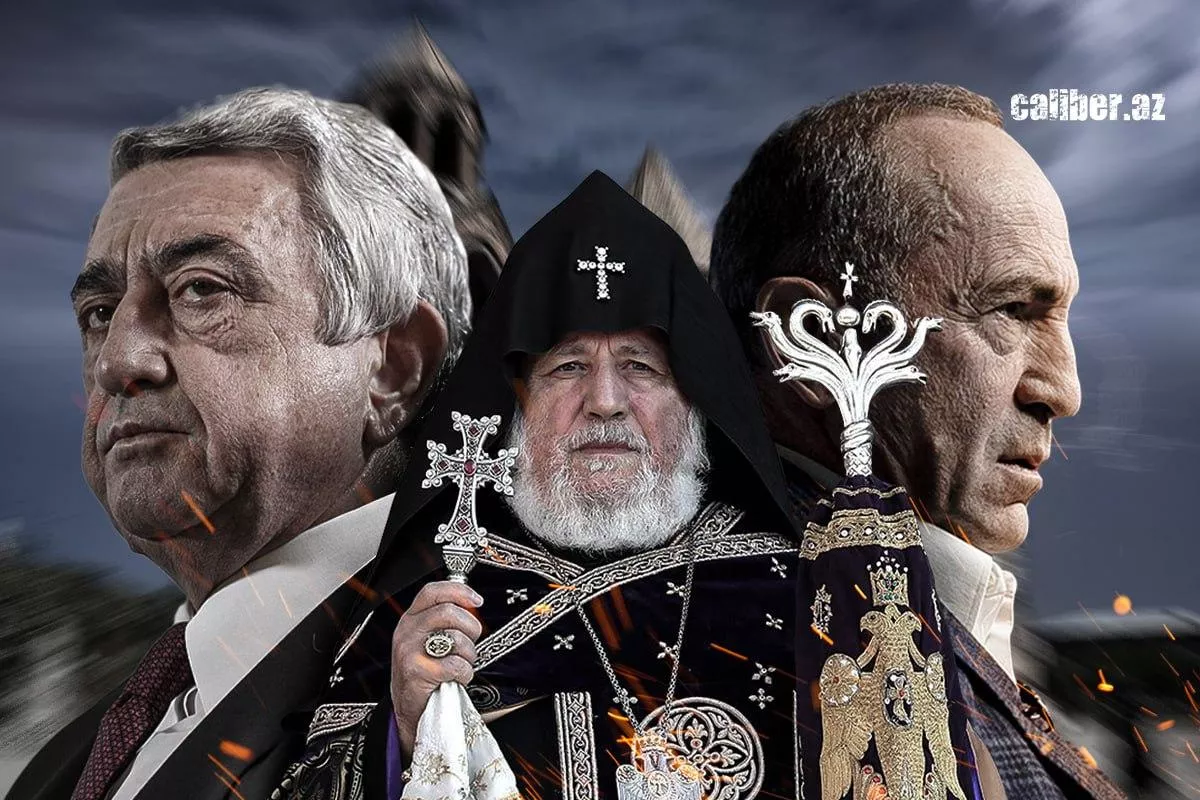Armenia’s new phase and unresolved issues Pashinyan’s “red lines” and messages to the opposition
Armenian Prime Minister Nikol Pashinyan, in his address to the Armenian people yesterday, August 19, voiced a series of optimistic statements regarding the normalisation of relations with Azerbaijan, taking as a basis the Washington agreements reached on August 8 at the White House under the patronage of U.S. President Donald Trump. In his speech, the Armenian premier placed particular emphasis on the fact that Baku and Yerevan had achieved peace following the signing of documents in Washington, stressing that this represents an unequivocal success for both Armenia and Azerbaijan.
“Peace has been established between the Republic of Armenia and the Republic of Azerbaijan. Since August 8, we have been living in a different South Caucasus, in a new Armenia,” Pashinyan said, adding that the agreements reached open the possibility of closing the chapter of hostility between the two peoples.
“We have definitively rejected and ruled out war as a tool, which marks the beginning of a new stage. This is a fact that cannot and should never be reconsidered; it paves the way for closing the chapter of enmity between our two peoples,” the prime minister stated. He added, “Only the resolution of the Karabakh issue made it possible to achieve peace with Azerbaijan,” emphasising that some forces had merely used the Karabakh topic as a tool to pursue their own objectives within Armenia.
It can be assumed that Nikol Pashinyan directed this pointed message primarily at the former leaders of the Karabakh clan, ex-presidents of Armenia Robert Kocharyan and Serzh Sargsyan, who, throughout their time in power, plundered the republic and filled their own pockets while disregarding the interests of the Armenian people. As a result, today the overwhelming majority of Armenian society opposes the return of these figures to the country’s leadership and does not take their futile calls to overthrow the current government seriously.

The fact that Nikol Pashinyan remains in power indicates that the majority of the country’s citizens trust the prime minister’s policies far more than those of his political opponents, including the opposition, the Karabakh clan, and members of the higher clergy. Therefore, it is highly likely that in yesterday’s statements regarding the peace settlement with Azerbaijan, the incumbent prime minister aimed to fully secure public support in order to move toward the signing of a comprehensive peace agreement in the near future.
This interpretation is reinforced by the reaction of Armenian society in the spring of 2024, when citizens broadly accepted Pashinyan’s statements on the need to return control of four villages in Azerbaijan’s Gazakh district—Baghanis Ayrim, Ashaghi Askipara, Kheyrimli, and Gizilhajili—and delimit part of the border. In essence, this was a political success for Pashinyan domestically and a sign of significant public trust in him. As a result, all attempts by the opposition and the church to stir unrest through protests ended in complete failure, failing to achieve their primary goal of changing Armenia’s government.
Returning to Pashinyan’s address to the nation yesterday, it is worth noting that his statement regarding the Armenians of Karabakh deserves special attention.
“Returning the refugees (Armenians from Karabakh who voluntarily resettled in Armenia – ed.) to Azerbaijan is unrealistic and dangerous for peace. Armenia must work together with the international community to create conditions for their life and integration in our country,” the Armenian leader said.
It can be interpreted that Pashinyan’s statement is, in essence, another confirmation that Karabakh is Azerbaijan. Following this logic, he sought to convey to the domestic audience that Armenia has no grounds to claim the return of Armenians to Azerbaijani territory. This is, first and foremost.
Secondly, Pashinyan’s statement on the inadmissibility of returning the Armenians of Karabakh to the region aligns with his assertion that Armenia and Azerbaijan have recognised the inviolability of each other’s borders and territorial integrity based on the 1991 Alma-Ata Declaration. In other words, the Armenian prime minister has outlined the “red lines” regarding Armenia’s respect for Azerbaijan’s territorial integrity.
It appears that the message—that the issue of the return of Karabakh Armenians is definitively closed and that they are now part of Armenian society—was primarily directed at opposition forces, namely the aforementioned Karabakh clan and the church.

In addition, the Armenian prime minister also addressed the issue of opening transport links in the region, emphasising that it is precisely thanks to the agreement reached in Washington that Armenia, which had been isolated for more than 30 years, has gained incredible opportunities.
“Transport connections between Armenia and Azerbaijan will be opened based on the principles of territorial integrity, sovereignty, jurisdiction, and inviolability of borders. We have previously expressed our readiness to simplify border crossing. This issue will be the subject of upcoming detailed negotiations. But it does not pose any new threat. Because the Washington Declaration establishes the principle of reciprocity. And this guarantees that balanced and mutually acceptable solutions will be found with Azerbaijan,” the Armenian prime minister said.
Another message from the prime minister is that ensuring uninterrupted connections between the main part of Azerbaijan and Nakhchivan through Armenian territory offers Yerevan new opportunities for cooperation. Altogether, this opens significant prospects for the Armenian economy, which is bound to please the country’s citizens, giving them a chance to improve their quality of life.
In conclusion, it should be noted that Nikol Pashinyan’s speech, full of optimism and addressed both to the Armenian people and the international community, can be viewed positively. At the same time, however, Armenia must clearly understand that Azerbaijan will not be satisfied with mere positive statements from Yerevan and expects concrete actions from the Armenian leadership to fulfill Baku’s key demand. One can only hope that the Armenian authorities, in the near future and with the same optimistic approach, will make the necessary constitutional changes to definitively close all unresolved issues in practice.








